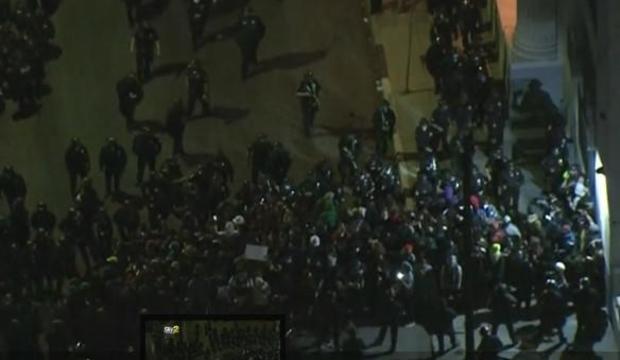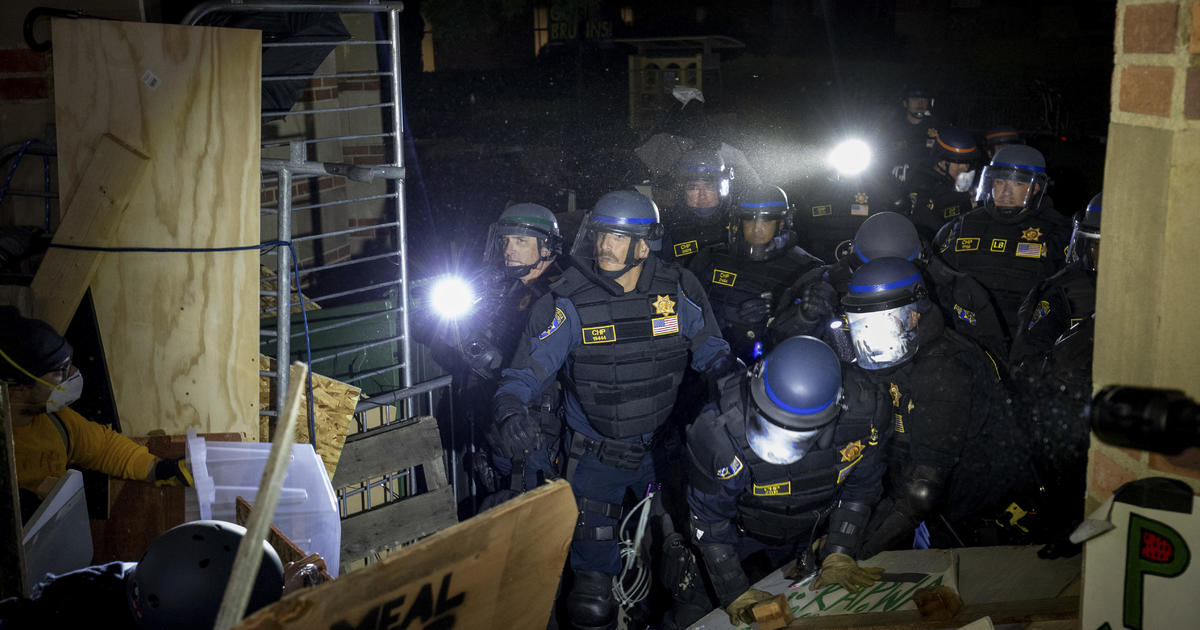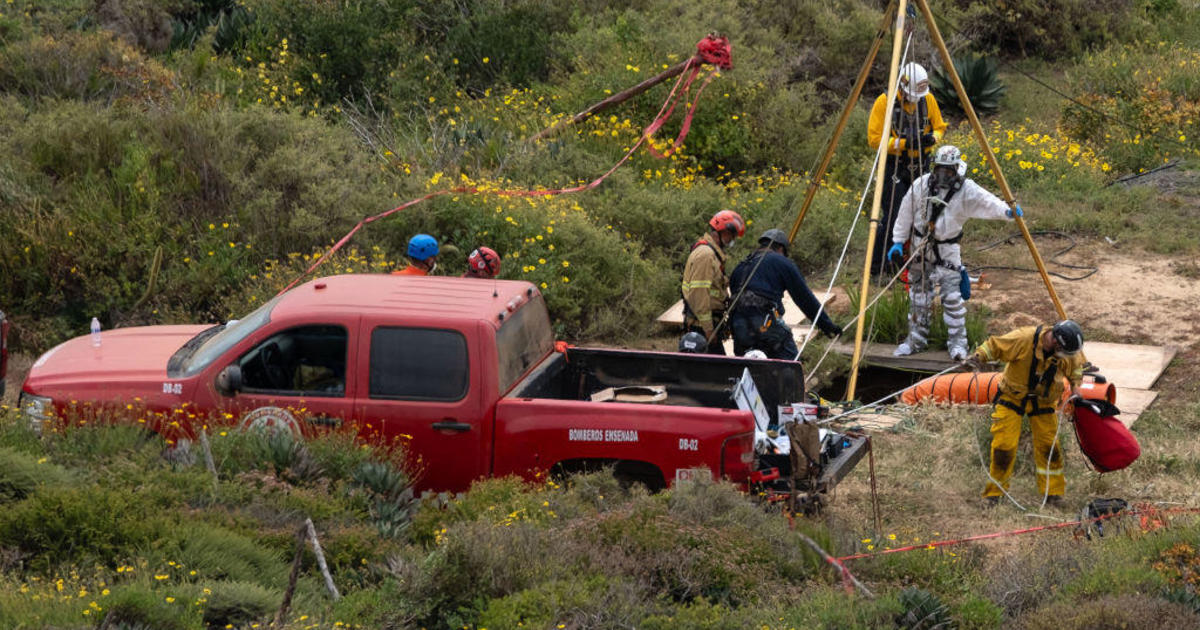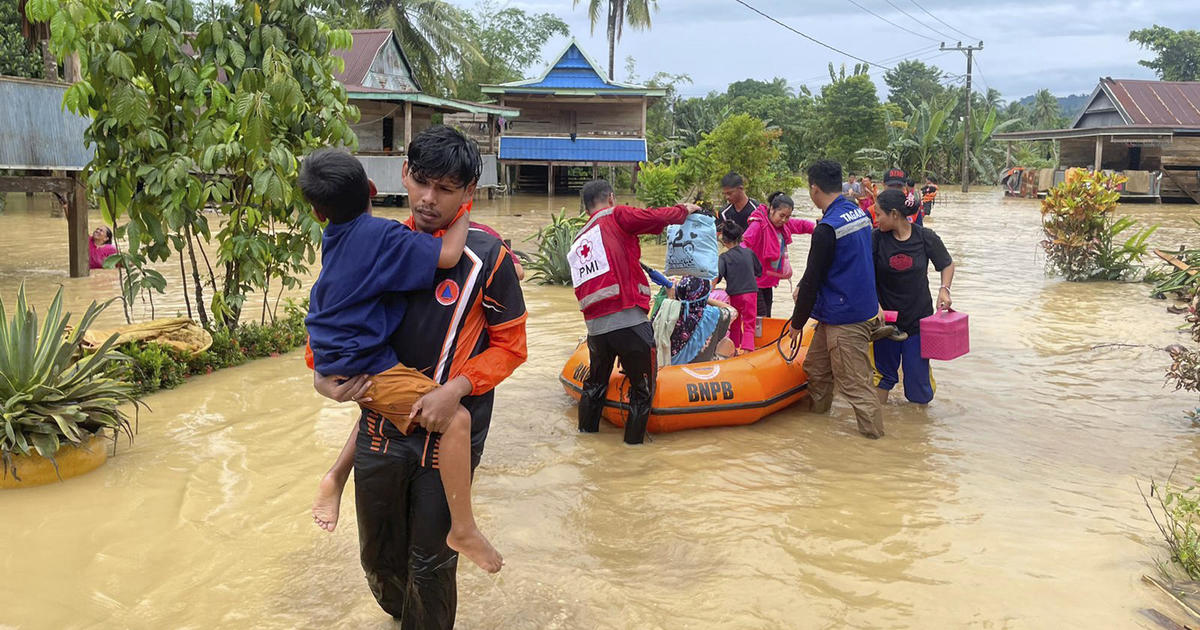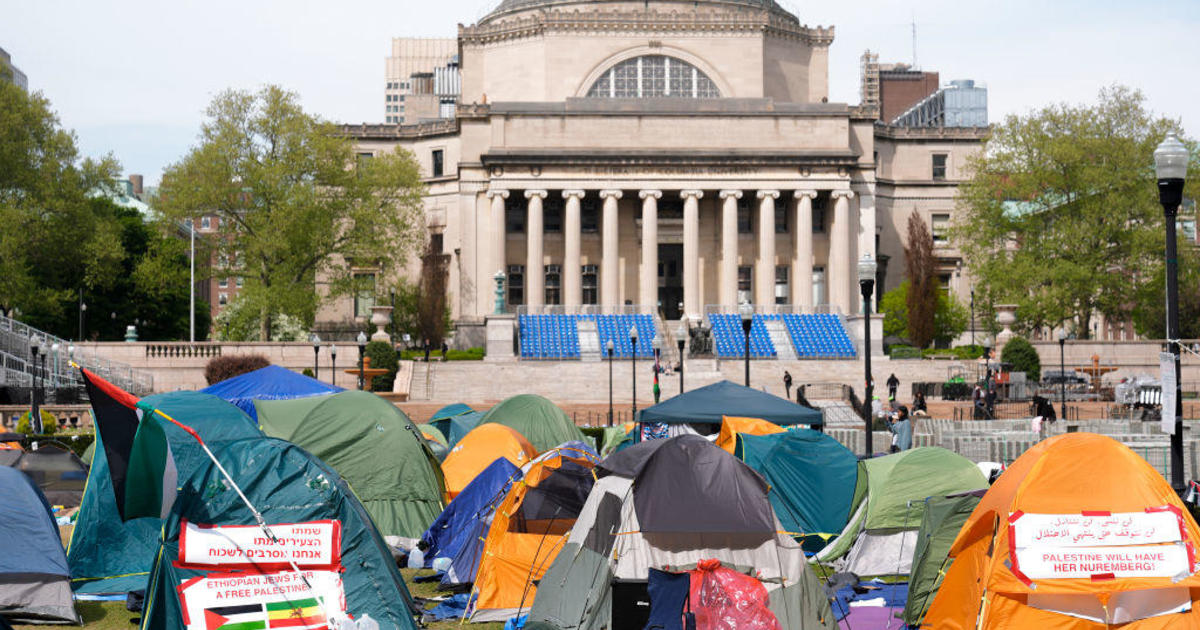Arrests at protest as large homeless camp shut at popular L.A. park
A newly installed fence surrounded a popular Los Angeles park Thursday after authorities moved in to evict residents of a large homeless encampment despite protests by the people who live there and their supporters. Only a few tents and about a dozen people remained by evening along the grassy banks of Echo Park Lake, where tents had proliferated for months during the coronavirus pandemic, sparking concerns about trash, drugs and violence.
Residents argued that the complaints were overblown and the encampment offered a community setting for people without means who have nowhere else to live.
About a dozen people were arrested Thursday night as roughly 100 protested the removal of the homeless camp, CBS Los Angeles reported. Police declared an unlawful assembly after officers said the large crowd used high-intensity lights in an attempt to blind them.
Occupants of the camp who leave have been offered temporary housing, and at least 166 people had already been sheltered, said Mitch O'Farrell, a city councilman whose district includes the park
CBS L.A. said two buses were at the scene in anticipation of arrests but only about a dozen people were actually arrested.
The gathering followed a confrontation late Wednesday night when authorities showed up to install the fencing. Several hundred people, including advocates and homeless residents, faced off against a line of police wearing riot helmets. Protesters carried signs that said "dignity, not displacement" and "we need long term solutions."
A police statement said there were verbal confrontations but that the protest was largely peaceful and demonstrators voluntarily departed. One person was arrested for failing to comply with an officer's orders, and officers twice used force that was characterized as minor, police said.
The encampment had overtaken areas surrounding the lake, an oasis-like locale where locals and tourists normally stroll and picnic on the lake's banks, which include a towering fountain and a view of the downtown skyline. The lake has been featured in many movies, including the Oscar-winning "Chinatown" in 1974.
Kelvin Martinez, an organizer with the advocacy group Street Watch LA, accused city officials of "bad faith communication." He said requests for services during the past year were largely ignored until the sudden announcement that the park would be closed.
"The city's strategy is to displace these people into dark corners, into hiding, under overpasses. As long as they're not visible in a public place like a park," Martinez said.
No timeline was provided for the length of the closure, which O'Farrell's office said was necessary to make "extensive repairs" to lighting and plumbing at the park and for general "public safety improvements."
The encampment has been the site of drug overdoses, assaults and shootings, with four deaths in the park over the past year, according to a statement from O'Farrell's office.
The location of the encampment in the fast-gentrifying Echo Park neighborhood gave it a high profile, but it wasn't unique for the metro Los Angeles area. Tents can be found throughout the city and region despite an array of state and local programs aimed at sheltering people and transitioning them to permanent housing.
A January 2020 count by the Los Angeles Homeless Services Authority reported that there were more than 66,400 homeless people living in Los Angeles County - by far the largest single concentration in the state.
That included more than 41,000 people within Los Angeles city limits. Both figures were up more than 12% from the previous year. The annual count was canceled for 2021 because of the pandemic.
Among the major legal actions on the issue is a federal court lawsuit filed by a group of business owners, residents and community leaders called the LA Alliance for Human Rights.
The lawsuit accuses the city and county of failing to comprehensively address the desperation that homeless people face - including hunger, crime, squalor and the coronavirus pandemic.
U.S. District Judge David Carter, who is overseeing the case, called parties to a hearing in a Skid Row parking lot last month and said that if politicians can't provide solutions, he wants to explore what powers the court has to order and oversee remedies.
Invoking the 1950s civil rights case Brown vs. Board of Education, Carter said there is strong precedence of the federal courts acting "after a long period of inaction by local government officials."
